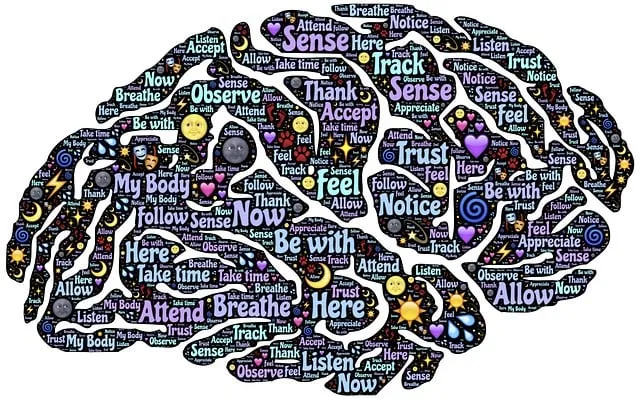The Kaiser Permanente mental health appointment center in Castle Rock prioritizes cultural sensitivity as a key factor for effective patient care, addressing diverse communities' unique needs. They achieve this through staff training, language services, and tailored interventions that respect individual identities and cultural practices. Their comprehensive approach, including education programs, community outreach, and resilience-building techniques, enhances mental healthcare quality by overcoming barriers like language differences and historical injustices, ultimately improving patient outcomes and fostering trust.
In today’s diverse society, cultural sensitivity in mental healthcare is paramount. This comprehensive guide explores why cultural competence is crucial for effective treatment, using Kaiser Permanente’s innovative approach at their Castle Rock appointment center as a model. We delve into identifying cultural barriers faced by diverse communities and provide strategies for mental health professionals to foster culturally sensitive practices. By enhancing patient outcomes, these efforts ensure successful therapy tailored to each individual’s unique cultural context.
- Understanding Cultural Sensitivity: Why It Matters in Mental Healthcare
- Kaiser Permanente's Approach to Cultural Competence in Castle Rock
- Identifying Cultural Barriers: Challenges Faced by Diverse Communities
- Strategies for Culturally Sensitive Practice: Tools for Mental Health Professionals
- Enhancing Patient Outcomes: The Impact of Cultural Sensitivity on Therapy Success
Understanding Cultural Sensitivity: Why It Matters in Mental Healthcare

Cultural sensitivity is a cornerstone in providing effective mental healthcare services, especially within diverse communities like that surrounding the Kaiser Permanente mental health appointment center in Castle Rock. Understanding and respecting cultural differences can significantly impact patient outcomes and build stronger relationships between mental health professionals and their clients.
In today’s interconnected world, mental health professionals must be equipped to navigate various cultural landscapes. This involves recognizing and acknowledging the unique beliefs, values, and practices that shape individuals’ experiences of mental illness. For instance, what may be considered a sign of anxiety in one culture could be interpreted differently in another. By embracing cultural sensitivity, mental health practitioners can avoid misdiagnosis, provide tailored interventions, and ensure inclusive care that respects clients’ identities and backgrounds, such as those offered through comprehensive Mental Health Education Programs Design. Moreover, culturally sensitive practices contribute to stress reduction methods that are nuanced and relevant to diverse populations, ultimately enhancing the overall quality of mental healthcare services in communities like Castle Rock.
Kaiser Permanente's Approach to Cultural Competence in Castle Rock

In Castle Rock, Kaiser Permanente’s mental health appointment center takes a nuanced approach to cultural sensitivity, recognizing the vital role it plays in effective treatment. They prioritize cultural competence by integrating diverse practices and perspectives into their service delivery model. This involves tailoring care to meet the unique needs of every patient, considering their ethnic background, religious beliefs, and cultural traditions. For instance, they offer language services, cultural awareness training for staff, and a Community Outreach Program Implementation that fosters trust and engagement within the local community.
The center also emphasizes evidence-based practices, combining traditional therapies with innovative techniques to address various mental health concerns. This comprehensive strategy ensures that patients from all backgrounds receive respectful, culturally sensitive care, promoting risk assessment and self-esteem improvement. Through these initiatives, Kaiser Permanente strives to create an inclusive environment where every individual feels validated and empowered on their journey towards mental well-being.
Identifying Cultural Barriers: Challenges Faced by Diverse Communities

In many diverse communities, cultural barriers can significantly impact access to and effectiveness of mental healthcare services, such as those offered at Kaiser Permanente’s mental health appointment centers in Castle Rock. Language differences, for instance, can create communication challenges, hindering accurate assessments and personalized treatment plans. Additionally, cultural norms and beliefs about mental illness may discourage individuals from seeking help or lead them to prefer alternative healing processes like traditional practices or community support systems over Western psychological therapies.
These barriers can further be compounded by historical injustices and systemic inequalities faced by certain communities, influencing their trust in healthcare providers and the overall mental health system. Understanding these nuances is crucial for fostering a safe and inclusive environment at mental health appointment centers. Incorporating cultural competency training for staff, offering translation services, and incorporating emotional healing processes that resonate with diverse populations can help overcome these challenges. Resilience building through tailored interventions not only supports individuals’ journey towards recovery but also strengthens their ability to navigate life’s stressors, ultimately enhancing the overall effectiveness of mental healthcare services in Castle Rock.
Strategies for Culturally Sensitive Practice: Tools for Mental Health Professionals

Mental health professionals at Kaiser Permanente mental health appointment centers, like the one in Castle Rock, play a vital role in fostering culturally sensitive care. This approach involves understanding and respecting diverse cultural beliefs, values, and practices to create inclusive environments that promote better patient outcomes. One key strategy is mental health education programs design tailored to address unique cultural perspectives on mental illness and treatment. By incorporating mindfulness meditation techniques into sessions, professionals can help patients develop coping mechanisms aligned with their cultural backgrounds.
Furthermore, integrating burnout prevention strategies is essential for maintaining culturally sensitive practices over time. Professionals can mitigate burnout by focusing on self-care, setting clear boundaries, and staying informed about cultural competencies. These proactive measures ensure that mental health services remain accessible and effective for all patients, regardless of their cultural identity or background.
Enhancing Patient Outcomes: The Impact of Cultural Sensitivity on Therapy Success

In the realm of mental healthcare, cultural sensitivity is a game-changer that significantly enhances patient outcomes. At Kaiser Permanente’s mental health appointment center in Castle Rock, professionals recognize that each patient comes from a unique cultural background, shaping their experiences and perspectives on mental wellness. This awareness fosters tailored care, ensuring that therapeutic interventions are not only effective but also respectful of individual cultural norms. By integrating empathy building strategies, the center aims to create a safe space where patients feel understood, encouraging open communication and honest sharing.
Through cultural sensitivity, mental health practitioners in Castle Rock can employ emotional well-being promotion techniques that resonate with diverse populations. This includes adapting therapeutic approaches, incorporating culturally relevant activities, and demonstrating genuine interest in patients’ backgrounds. Such personalized care not only improves therapy success rates but also strengthens the therapist-patient relationship, ultimately fostering more positive outcomes for all individuals seeking mental wellness support at Kaiser Permanente’s Castle Rock center.
Cultural sensitivity in mental healthcare is not just a preference, but an essential component for successful treatment. As evidenced by Kaiser Permanente’s culturally competent approach at their Castle Rock appointment center, understanding and addressing cultural barriers can significantly enhance patient outcomes. By implementing strategies that cater to diverse communities, mental health professionals can create inclusive environments, fostering effective therapy and improved well-being for all. This tailored care ensures that every individual, regardless of their background, receives the highest quality of mental healthcare.






